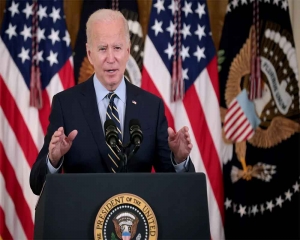An angry Babul rang the editor to register his verbal protest... But by opting for instant sensationalism to score a political point, the publication may have endeared itself to the journalistic culture of insolence but I think the damage to its professional reputation may outweigh short-term gains. Readers in our conservative country don’t like profanities staring at them on the breakfast table
If you go by media reports — and I am not suggesting these are inaccurate — West Bengal seems in a state of permanent political ferment. It is not merely the Opposition — both BJP and Left — that is in a state of unending excitement, even the ruling party and the State Government appear to be in a permanent campaign mode.
One of the high points of excitement in the past week was the fracas in Jadavpur University involving some ultra-Left students and Union Minister Babul Supriyo. By now the extensive video footage of the six-hour drama has been dissected and the relevant clips shared on social media and shown on TV. The war of words too has been unending with different people, depending on their voting and ideological preferences, pointing accusing fingers at the different sides. There has also been the comic relief of the Vice Chancellor and his senior colleague having to be admitted to a private nursing home to apparently recover from a spike in blood pressure. Many say that hospitalisation is the first refuge of the political acrobat.
Shenanigans, as witnessed over the Jadavpur University encounter with a Union Minister, are nothing unique. They happen, create high excitement momentarily and are quickly forgotten. In West Bengal, with the Durga Puja festivities round the corner, an incident where, fortuitously, no one was seriously injured, the harassment of Babul Supriyo will be quickly buried in the footnotes. Even the social media warriors will move to the next battle.
However, there is one intriguing aspect of the fracas that should warrant some long-term, serious deliberation. It seems that the Minister was seriously offended by the coverage of the incident by a local English daily which makes no secret of its visceral hatred for Narendra Modi and the BJP. Babul has not been one of its pet hates but because he was targeted by the ultra-Left by virtue of his association with the BJP, he was assumed by the newspaper to be in the wrong. Consequently, there were enough assaults on his conduct to suggest that his conduct that evening in the Jadavpur campus was less than honourable.
An angry Babul rang the editor to register his verbal protest. At some point he must have got infuriated by the response and described the publication as a “f…ing sellout””.
The expression was unquestionably unparliamentary but hardly the worst thing anyone accustomed to a newsroom should feel mightily offended over. Anyway that is a personal call. What is more relevant is the fact that in the course of coverage, media people are accustomed to confronting anger and exasperation. Sometimes this takes the form of a silent rebuff, at other point with colourful abuse and occasionally with both threats and actual violence. The temptation to get diverted from the story and focus on the travails of news gathering is natural. It is about as incidental as the periodic praise a reporter or editor may be showered with for a report or the presentation. As a young journalist I was told by an experienced hand that the focus should be on the story and not on the personal experiences of coverage. Likewise, an editor’s job has often involved listening to angry outbursts by people who think the coverage was either biased or plain wrong. These have to be handled tactfully, not least because journalism involves building long-term relationships with people who are likely to be in the news. Spit-and-run journalism may have its advocates but that isn’t for those who are in for the long haul.
The point in short is that the journalist isn’t the story. The tendency to personalise everything may be good for travel writers and novelists but readers are not principally interested in how a story was secured and how the subject felt subsequently. They are interested in the story itself.
Secondly, journalism involves a multitude of conversations that are understood to be off the record. The idea always is to build confidence so that a subject can be as frank as possible. The exercise is comparable to intelligence gathering — to extract the maximum information with jeopardising the relationship with the informant. Private conversations, the unwritten rule suggests, isn’t for publication, although the gist of the information may well be. If private conversations are habitually reported, the trickle of information will automatically cease and journalists will lose access.
I seriously don’t know what got into the Kolkata newspaper that its lead story on the front page was devoted entirely to its editor’s encounter with an angry Babul who felt he had been wronged. The purpose of the report was to paint the Minister in an unfavourable light — as a vain, arrogant and uncouth individual. Whether it succeeded in this game of political one-upmanship remains to be seen. However, by divulging the details of a private exchange, the publication broke every unwritten rule of the profession.
Over the years, the media has acquired a reputation for shrillness, bias, arrogance and cravenness — both going hand in hand. Now it has added untrustworthiness to its list of attributes. By opting for instant sensationalism to score a political point, the publication may have endeared itself to the journalistic culture of insolence but I think the damage to its professional reputation may outweigh short-term gains. Readers in our conservative country don’t like profanities staring at them on the breakfast table.

























